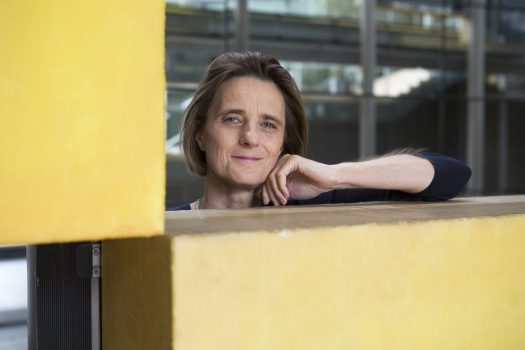
Daphne Bavelier
Group name: Brain and learning Lab
Affiliations: Faculty of Psychology and Science of Education, Psychology Section
Domains: Development and Plasticity, Language and Communication, Perception, Attention and Cognition
Keywords: attention, brain plasticity, deafness, video games
Research activities
A distinctive feature of the human brain is its capacity to learn and adapt to an ever-changing environment. What are the factors that promote such learning and brain plasticity? Are some parts of our nervous system more plastic than others, making some skills easier to acquire? Answers to these questions are central to basic science, education, clinical rehabilitation, and aging. To address these questions, my laboratory uses a multidisciplinary approach (behavior, brain imaging, eye tracking, vital statistics) to study how individuals learn and adapt to changes in experience, whether induced by nature (deafness) or training (playing video games). Our work and that of others in the field highlights that, although possible, learning and brain plasticity tend to be highly specific. Overcoming this specificity would be advantageous. Our research focuses on characterizing the factors that may contribute to greater plasticity and wider transfer of learning, and understanding the mechanisms by which they act.
Latest publications
Rethinking planning metrics: An analysis of common measurements of planning abilities.
Learning and Transfer: A Perspective From Action Video Game Play.
Going beyond video game consumption when considering Internet Gaming Disorder.
Correction: Evaluating the effect of action-like video game play and of casual video game play on anxiety in adolescents with elevated anxiety: protocol for a multi-center, parallel group, assessor-blind, randomized controlled trial.
Contact
Faculté de psychologie et sciences de l’éducation
Université de Genève
Email: Daphne.Bavelier@unige.ch